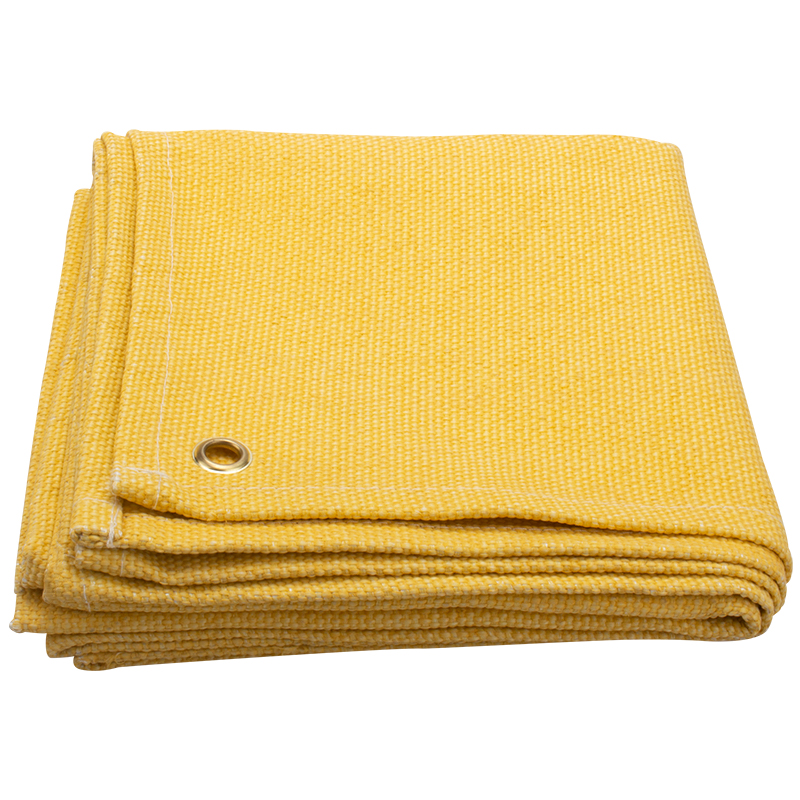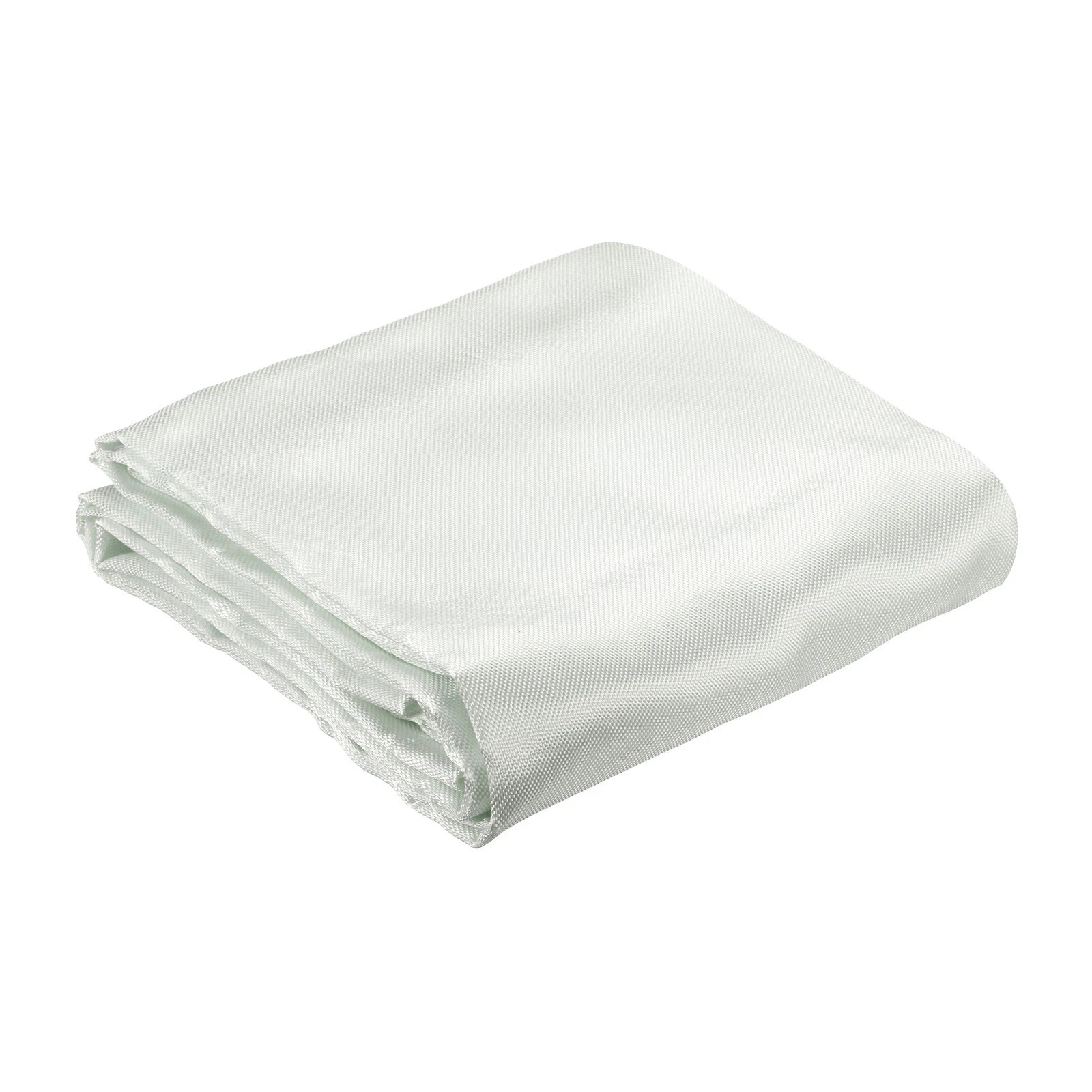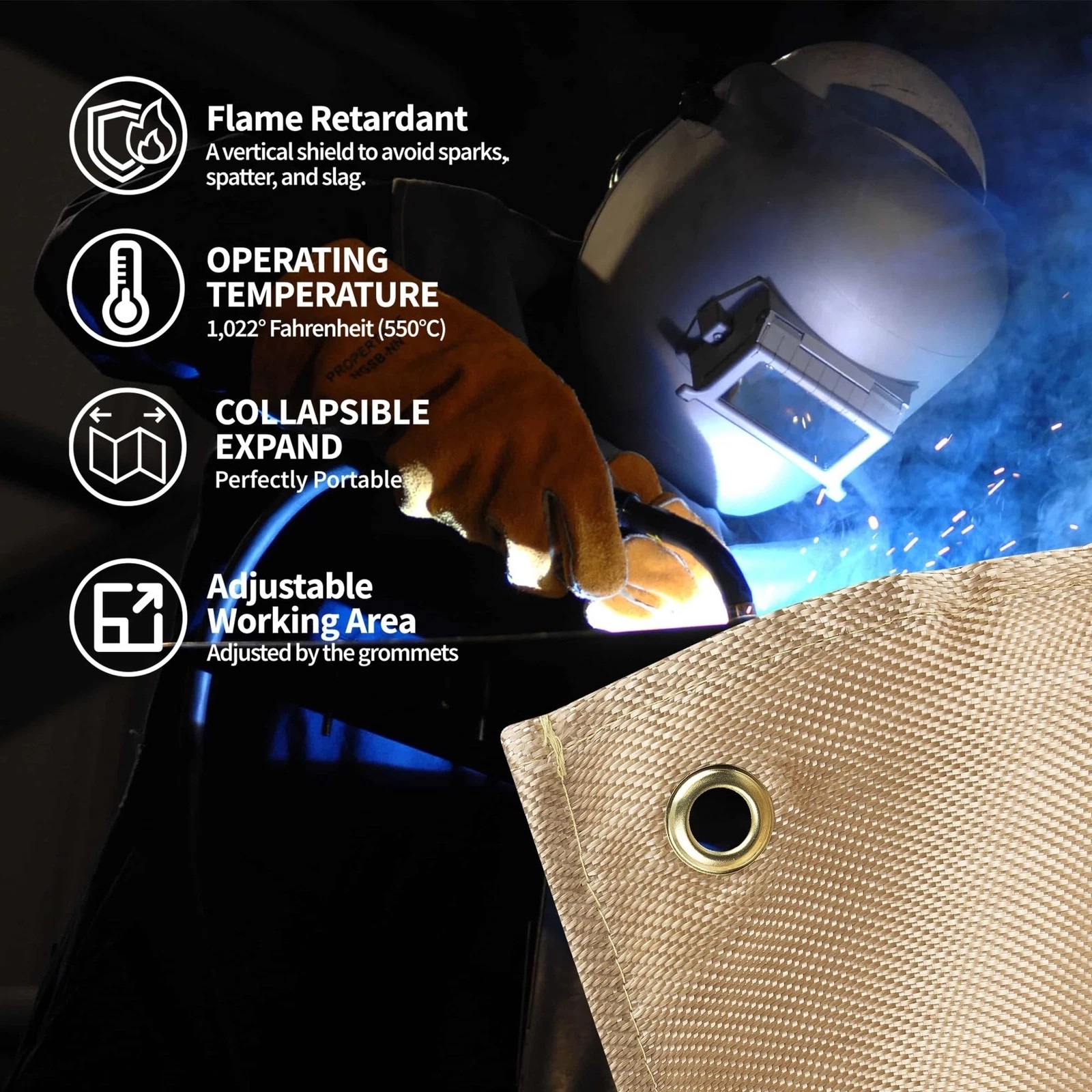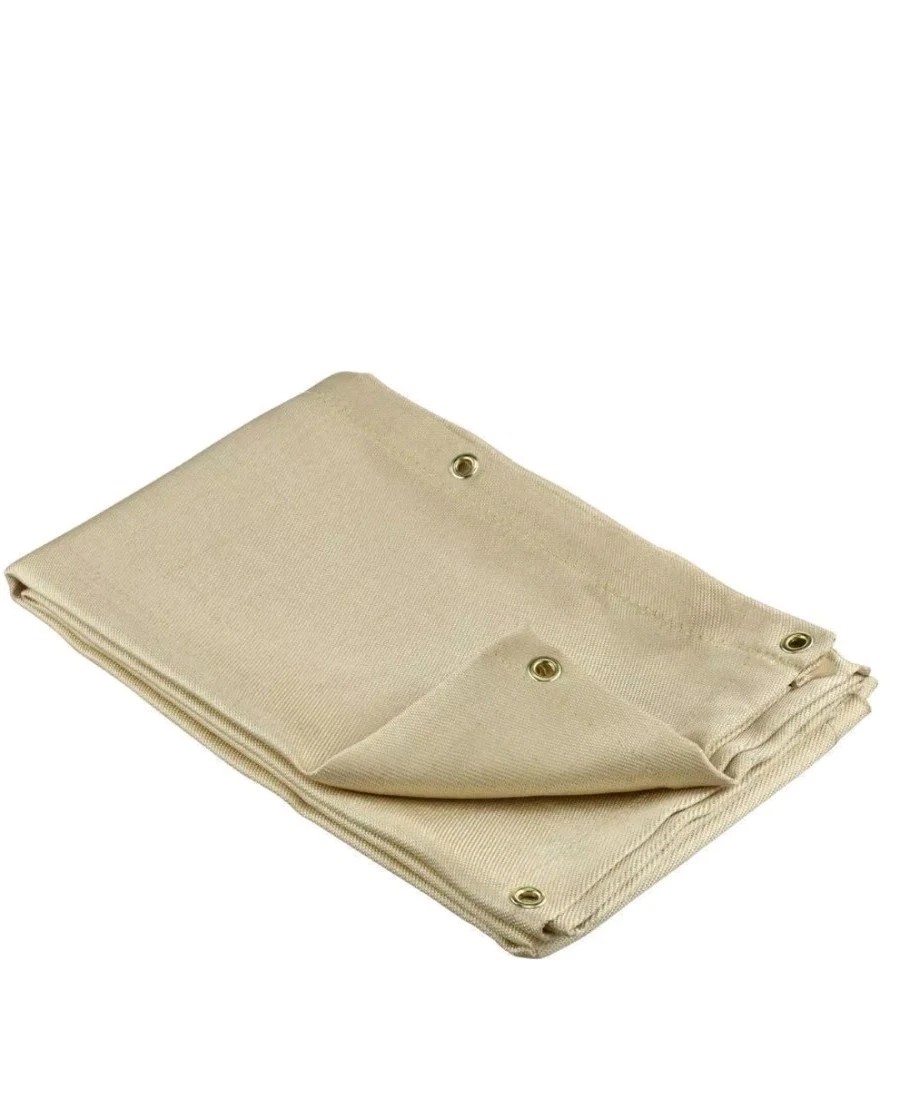Fiberglass vs Carbon Fiber Welding Blankets: Key Differences for Welders
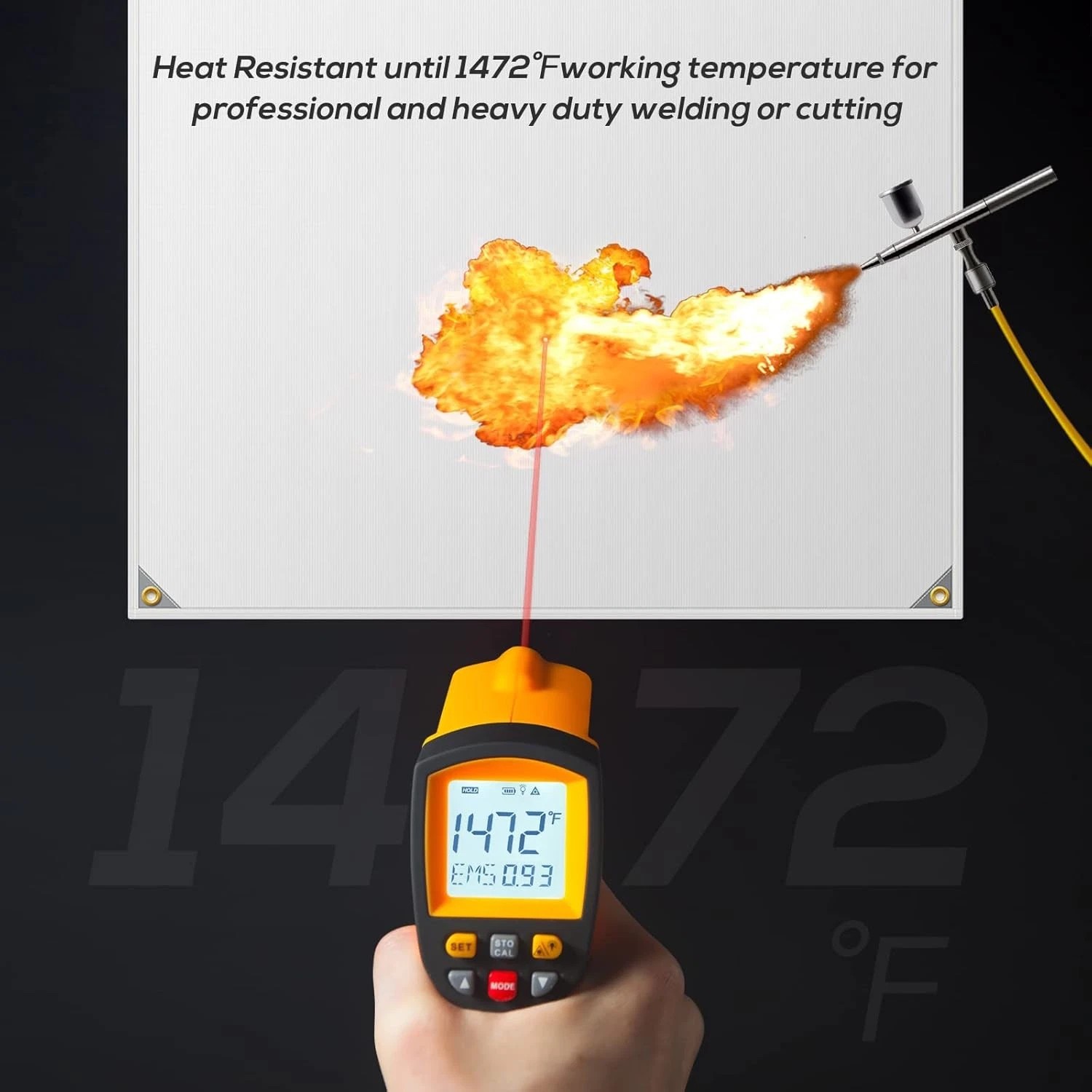
When choosing welding blankets, you need to understand how fiberglass and carbon fiber options compare in heat resistance, durability, and cost. This guide breaks down their key differences to help you select the right protection.
Heat Resistance Comparison
Fiberglass welding blankets typically withstand temperatures up to 1,000°F (538°C), making them suitable for most common welding applications. The tightly woven fiberglass fabric provides reliable protection against sparks and moderate heat.
Carbon fiber welding blankets offer superior heat resistance, handling up to 2,000°F (1,093°C). Their advanced composition makes them ideal for high-temperature welding processes like plasma cutting or working with molten metal.
Durability and Longevity
Fiberglass blankets are more flexible and resist tearing well, but they can degrade over time when exposed to continuous high heat. You'll notice the fibers becoming brittle after extended use in demanding environments.
Carbon fiber models maintain structural integrity better under repeated heat exposure. Their reinforced construction resists abrasion and puncture damage, though they're typically less flexible than fiberglass options.
Weight and Handling
Fiberglass welding blankets are lighter (typically 12-16 oz/sq yd) and easier to drape over irregular shapes. This makes them convenient for mobile welding jobs where you need to frequently reposition protection.
Carbon fiber blankets weigh more (18-24 oz/sq yd) due to their denser construction. While offering better protection, they can be more cumbersome to handle during complex welding setups.
Cost Considerations
Fiberglass welding blankets cost significantly less ($50-$150 depending on size), making them practical for general-purpose use or when you need multiple protective covers.
Carbon fiber blankets command higher prices ($200-$500) due to their advanced materials and superior performance. The investment makes sense for specialized high-heat applications where safety is critical.
Safety Features
Both types provide excellent flame resistance, but carbon fiber offers better protection against radiant heat. Fiberglass may require additional layers for equivalent protection in extreme conditions.
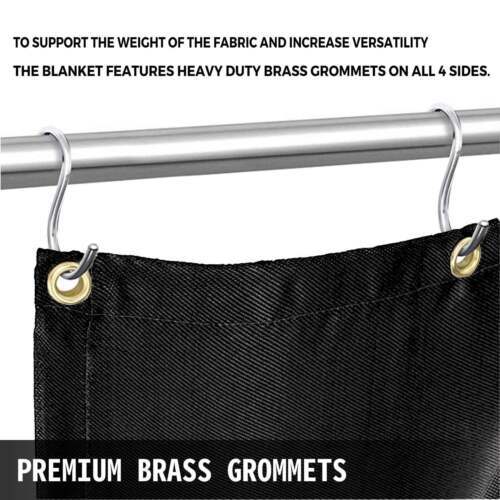
Carbon fiber's non-porous structure better prevents molten metal penetration. This makes it preferable when working with materials that produce hot spatter like aluminum or magnesium.
Maintenance Requirements
Fiberglass blankets need regular inspection for fiber breakdown. You can extend their life by gently brushing off slag and storing them flat when not in use.
Carbon fiber requires less frequent replacement but benefits from occasional vacuuming to remove embedded particles. Avoid folding carbon fiber blankets sharply to prevent crease damage.
Choosing What's Right for You
Select fiberglass welding blankets if you need affordable, flexible protection for general welding tasks at moderate temperatures. They work well for MIG, TIG, and stick welding in most shop environments.
Invest in carbon fiber when working with extreme heat sources or hazardous materials. Their superior performance justifies the higher cost for industrial applications, foundry work, or critical safety situations.
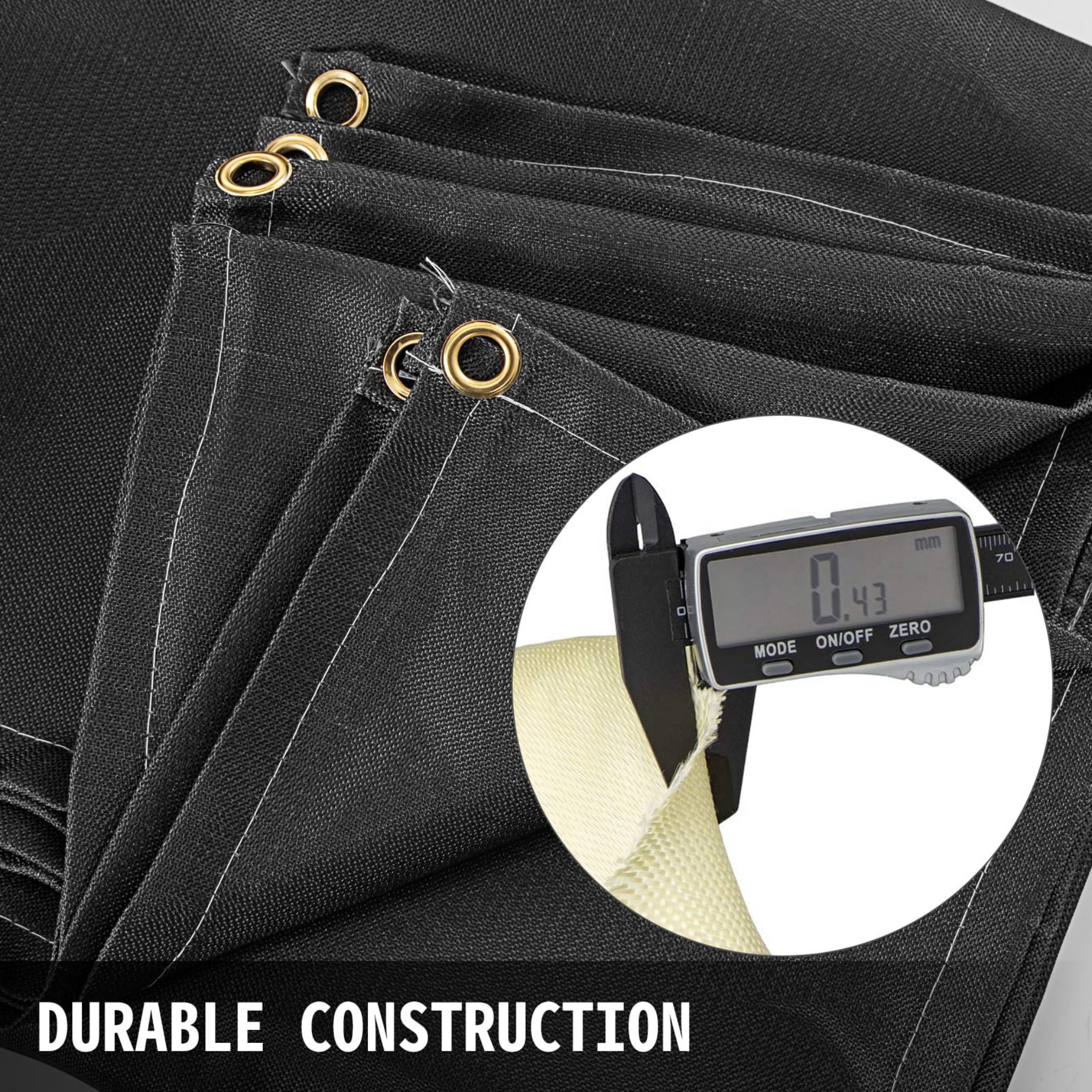
Many professional welders maintain both types - using fiberglass for everyday jobs and carbon fiber for specialized high-heat applications. Consider your specific welding processes and budget when making your choice.


